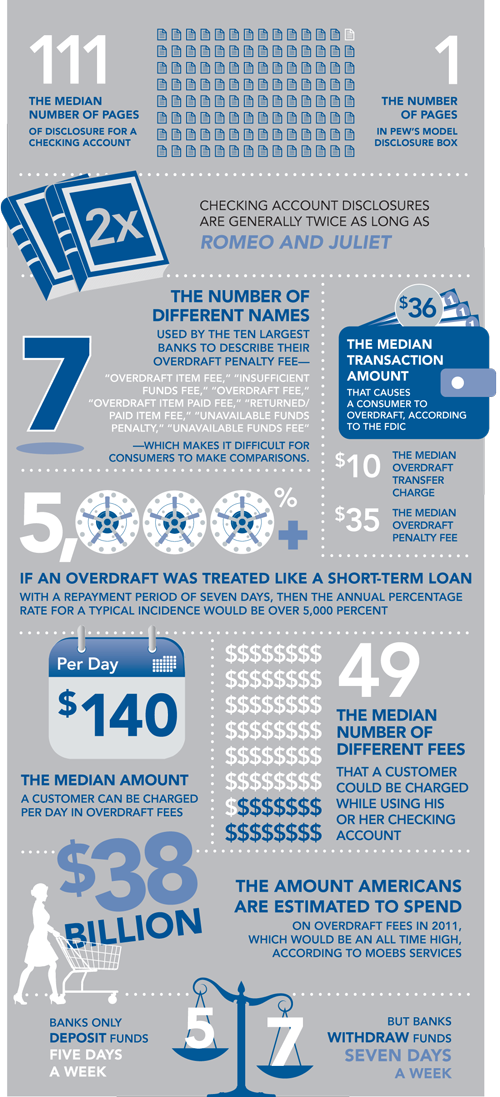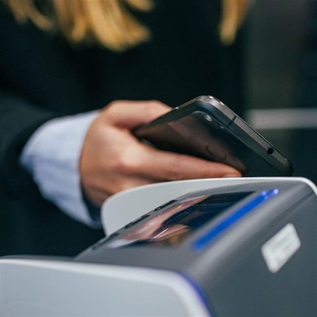Checking Account Risks at a Glance

The Pew Health Group's Safe Checking in the Electronic Age Project conducted a study of checking account terms and conditions that examines both the state of the marketplace and the effect of current regulations covering these accounts. Pew analyzed more than 250 types of checking accounts offered online by the 10 largest banks in the United States, which hold nearly 60 percent of all deposit volume nationwide.
In researching checking accounts, Pew charted the median and the range for many fees, the variations in key practices and the extent of certain practices. The figures below display some of Pew's most important findings from its recent report, "Hidden Risks: The Case for Safe and Transparent Checking Accounts."
- $36 is the median transaction amount that causes a consumer to overdraft - Federal Deposit Insurance Corporation, “Study of Bank Overdraft Programs” (November 2008), available at http://www.fdic.gov/bank/analytical/overdraft/FDIC138_Report_Final_v508.pdf.
- $38 billion is the amount Americans are estimated to spend on overdraft fees in 2011 - Press Release, Moebs Services, Overdraft Fee Revenue Drops to 2008 Levels for Banks and Credit Unions, (Sept. 15, 2010), available at http://www.moebs.com/Pressreleases/...











